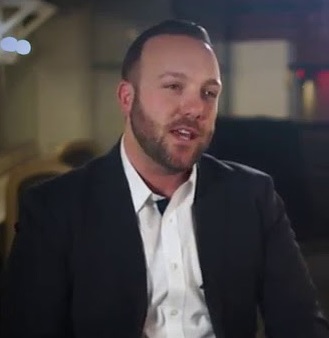The Secret Weapon You Didn’t Know You Had: Mastering Sales Skills with Everyday Interactions
You’ve just learned a powerful new sales technique. Your mind races with possibilities, eager to put it into action. But where do you start? How do you translate theory into real-world results? The answer might surprise you: it’s all around you, in the everyday interactions you have with friends, family, and even strangers.
Many sales training programs leave a crucial element out: the practice phase. While knowledge is essential, true mastery comes from honing your skills in a safe and familiar environment. This is where your loved ones and everyday encounters become your greatest training ground.
This approach might seem unorthodox, but here’s why it works:
- Understanding Human Behavior is Universal: Sales are all about human interaction. Whether you’re selling software to a CEO or convincing your teenager to clean their room, the core principles remain the same. You need to understand their motivations, concerns, and decision-making process. Interacting with friends and family allows you to hone these skills in a setting free from the pressure of a sales call.
- Practice Makes Perfect: Nailing a sales pitch requires repetition. Just like any athlete trains before a game, salespeople need to practice their craft. Everyday conversations offer countless opportunities to experiment with different approaches, ask open-ended questions, and refine your communication style.
- Building Confidence: Like any performance, sales conversations can be nerve-wracking. Practicing with familiar faces builds confidence and allows you to experiment freely. The more comfortable you feel navigating conversations, the more effective you’ll be when the stakes are higher.
Your Training Ground: Everyday Interactions to Master Sales Skills
So, how do you turn your daily interactions into sales training sessions? Here are some practical strategies:
- The Dinner Table Masterclass: Turn mealtimes into mini-negotiations. Instead of dictating chores, engage your kids in a conversation about their responsibilities. Ask open-ended questions like, “What would make you feel more comfortable helping out with the dishes?” or “What do you think would be a fair way to share household tasks?” This teaches you the art of active listening, identifying needs, and finding solutions that benefit everyone.
- The Friend Zone Advantage: Planning outings with friends? Treat it as a chance to practice your consultative selling skills. Ask questions about their interests, what kind of activity they’d enjoy, and any dietary restrictions. Frame your suggestions as solutions that meet their needs, creating a win-win situation.
- The Art of the Ask: Need a favor from your significant other? Don’t just make a demand. Explain the situation, acknowledge their needs, and offer something in return. For example, instead of saying, “Take out the trash,” try, “Hey honey, I noticed the trash is full. Would you mind taking it out when you get a chance? I’d be happy to pick up your favorite takeout later.” This practice fosters better communication and teaches you the art of framing requests.
- The Server Whisperer: Your next restaurant visit can be a masterclass in customer service. Pay attention to how the server interacts with your table. Notice their body language, how they handle questions, and how they offer suggestions. This observation helps you understand how to build rapport, address concerns, and leave a positive lasting impression – all crucial skills for successful sales interactions.
Beyond Practice: Turning Everyday Interactions into Sales Gold
The practice you gain from everyday interactions goes beyond the technical aspects of sales. Here are some additional benefits:
- Empathy Amplifier: Engaging with friends and family allows you to step outside your own perspective and understand their needs. This empathy translates to sales calls, enabling you to connect with clients on a deeper level and tailor your approach accordingly.
- Building Trustworthy Relationships: Sales are all about building trust. By fostering open and honest communication with loved ones, you refine your ability to build genuine rapport with potential clients. People are more likely to do business with someone they trust and feel comfortable with.
- Resilience Training: Everyday interactions aren’t always sunshine and roses. Sometimes, your suggestions might be met with resistance. Learning to navigate these situations with loved ones prepares you for potential objections from clients. You’ll develop the skills to reframe arguments, address concerns, and find solutions that satisfy everyone.
Do This, Not That: Mastering the Art of Conversation
Beyond active listening and questioning, there are specific conversational techniques that can significantly enhance your sales skills. Let’s explore a couple of examples:
- NO Questions: Instead of asking direct, closed-ended questions like “Can you pick me up on Friday night?”, try framing your requests as questions that imply a “yes” answer. For instance, “Would it be unreasonable to ask for a ride on Friday night?” This technique, often referred to as a “NO question,” is a subtle yet powerful persuasion tool rooted in NLP.
- Cultivating Curiosity: When someone tells you “I’m a lawyer,” resist the urge to respond with a simple “Oh, interesting.” Instead, pique their interest by showing genuine curiosity. Ask, “Tell me more about that. What do you find most rewarding about your work?” This demonstrates engagement and encourages deeper conversation, building rapport and trust.
By practicing these techniques in your everyday interactions, you’ll develop a natural ability to steer conversations towards desired outcomes while building stronger connections with others.
There you have it!
Want to become a master negotiator? Negotiate everyday.
Want to become a great baseball player? Play baseball every day.
Want to become a perfect persuader? Persuade every day.
Pretty simple…HAPPY SELLING!

Many people “talk” sales effectiveness, but few have demonstrated the ability to transfer that effectiveness to entire organizations for high impact. For nearly two decades Tony has not only shared his sales strategy to organizations all over the world, but he has consistently created high performing sales cultures that have impacted the bottom line of hundreds of organizations.